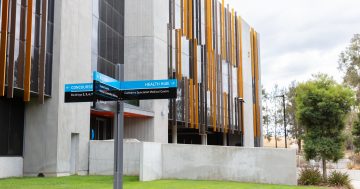The Canberra Times has tough talk from the ever growing educational hegemon of the University of Canberra.
Essentially they seem to have stopped playing nice with the CIT merger. They want the assets, they want to keep their own name, and if they don’t get it they plan to attack CIT’s market.
UC Vice-Chancellor Professor Stephen Parker has also used a submission to the ACT Government to deliver a backhander to the CIT, pointedly questioning its exemption from payroll tax, and calling for contestable funding for diplomas, bachelor and postgraduate qualifications if the merger is shelved and the two institutions go head-to-head in direct competition.
UC’s council finalised on Friday its formal response to Professor Denise Bradley’s review of the UC and CIT. The response was delivered to the ACT Government yesterday and will be made publicly available today.
In it, Professor Parker lists a primary demand of keeping the University of Canberra name. He also requested the ACT Government transfer an agreed list of CIT assets to the UC in a way which would prevent future governments clawing those assets back.
Professor Parker also wants Commonwealth and/or ACT Government funding to cover the cost of the merger, which he estimates will exceed $20 million.
The ACT Government has until November 30 to meet these, and other, conditions or Professor Parker said the UC would ”part company with the idea”, focusing instead on international student recruitment, operating in the new deregulated university system from next year, gaining a world ranking by 2018, and, ”generally on charting its own destiny”.
The elephant in the room is at some point in the near future the Harvards and Oxfords of the world are going to start offering online learning degrees globally. A bachelor of hairdressing (and similar) is going to be the only way for third tier universities to compete in the undergraduate market.
Any course that can be taught simply by listening, reading, and writing is going to be offered by far more attractive institutions, probably at a much lower price.
ANU is probably at even greater threat, but has never paid much attention to pesky undergraduates (the operators of UniLodge on the other hand might soon find themselves with a lot of empty real estate).



















